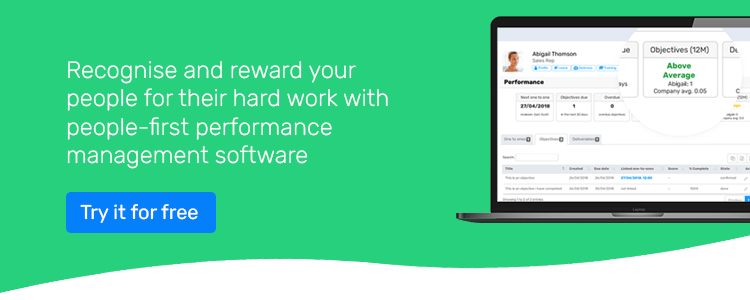Now, before you think that all sounds a bit ‘woo woo’, let me explain more. Mindfulness is not a religion and it’s not about sitting cross legged on the floor. It’s about learning to train your mind, accepting and acknowledging your feelings and bringing awareness to the present moment.
What is mindfulness?
Put simply, mindfulness is meditation. It’s an ancient Buddhist practice which is about paying attention in a particular way, in the present moment, on purpose and non-judgmentally.
Today the majority of people lead very busy lives at work and home and spend most of their lives on autopilot. When you go home you may find it difficult to switch off from work, especially with the amount of technology around. This means you're always connected, which makes it very difficult to relax and unwind.
You’re always thinking about the huge list of things still to be done. You’re so busy ‘doing’ it’s not possible to take time to enjoy the now, this moment. You’re always worrying about the past or the future and missing your time in the present.
One of this consequence for this busy life is your work life balance suffers and so does your health. You may experience a feeling of overwhelm, stress or depression. This then affects your work and home life. You may make mistakes, become unproductive, over react to issues and have difficulty with relationships.
Practising mindfulness will not make all your issues go away, but it will enable you to make choices, and learn skills that will help slow you down so you can enjoy life. It allows you to focus your attention and have choices over how you react to situations. It can provide you with an opportunity to prevent things spiralling out of control.
When you meditate you can use your breath as an anchor which starts the calming process. You'll soon find that your heart rate slows down, you become more relaxed, blood pressure falls and tension is released. While you are concentrating on your breathing it’s not possible to think of anything else.
Numerous clinical trials have shown the positive effect mindfulness has on the brain including wellbeing and happiness.
Mindfulness creates a sense of control over your conscious thoughts, attitude and behaviours. Any activity at any time can be completed using mindfulness.
4 benefits of mindfulness in the workplace
Increases productivity, the ability to focus and concentrate
Mindfulness helps you to think and respond more creatively and improve your productivity. It can make you feel more energetic, give you the ability to see a broader perspective and become a better listener.
Reduced stress, anxiety and depression
Research by Breathe found that 37% of UK businesses have seen an increase in stress related absence in the last year, and that 62% of health-related absences were due to long-term health conditions including stress. Download the full Sick Report for free here.
The Health and Safety Executive also reported that one in five employees feel very or extremely stressed at work, and that in 2017/18, 15.4 million working days were lost due to work related stress or depression. This is up by nearly 2.5 million in the previous year.
Practising mindfulness meditation on a daily basis reduces your stress levels and provides techniques to help you cope and see things differently, which can be especially beneficial in the workplace.
Supports a healthier work life balance
By paying attention to how things are and not judging things in any way can help you respond more effectively in all areas of your life.
Transport for London introduced a mindfulness training programme and employees reported improvements in their relationships, happiness at work, sleep patterns and their ability to relax.
Regular meditation can also boost the immune system, lower blood pressure and provide you with a positive outlook on life.
Increases engagement in the workplace
Mindfulness helps to create a positive culture at work. Absence levels are reduced and employee retention improves. Job satisfaction increases and productivity is higher.
Ways to introduce mindfulness at work
A number of well-known companies have introduced mindfulness courses into the workplace including Google, Apple and Starbucks.
- Organise an in house training course. These are typically eight-week programmes.
- Offer an online mindfulness course.
- Set up a quiet area or room, depending on the space available, where employees can take short breaks or time out to practice mindfulness meditation.
- Offer a discounted subscription to a mindfulness app, such as Headspace.
- Hold mindful meetings.
- Get up and take a meditation break. This will help you return to your work energised and more focused.
- Take mindful walks.
- Encourage employees to practice meditation at work and home.
Not sure if mindfulness is right for you? Give it a try - you have nothing to lose and everything to gain.
About the author
 Jacqui Mann, founder of J Mann Associates, is an HR Expert who specialises in creating great places to work. As well as providing HR to business owners across the UK, she helps forward-thinking business owners implement the P.E.O.P.L.E. ™ System. She is also the author of ‘Recruit, Inspire & Retain, How to Create a Company Culture to Grow Your Business’.
Jacqui Mann, founder of J Mann Associates, is an HR Expert who specialises in creating great places to work. As well as providing HR to business owners across the UK, she helps forward-thinking business owners implement the P.E.O.P.L.E. ™ System. She is also the author of ‘Recruit, Inspire & Retain, How to Create a Company Culture to Grow Your Business’.
Jacqui has studied the wide reaching impact people make to an organisation for over 20 years. She’s seen first-hand the difference the right culture and environment can make to a company’s results. Company culture and change management is her speciality. She has worked with both public and private sector companies supporting them with culture change programmes.
She is a Chartered Member of the CIPD and a member of The British Psychological Society and a certified DiSC trainer. She is a qualified business coach and a Graduate of the Institute of Master Coaches and has coached business owners and Fortune 500 company leaders and their teams.
She trained with the Tavistock Consultancy on Organisational Development and Change. Her passion is in supporting SME’s to create and define great workplace cultures. She runs regular workshops and speaks about company culture at conferences and events.
You can contact Jacqui via her websites or on social media.
Websites
www.jacquimann.com
www.jmassociates.org
Author: Jacqui Mann




